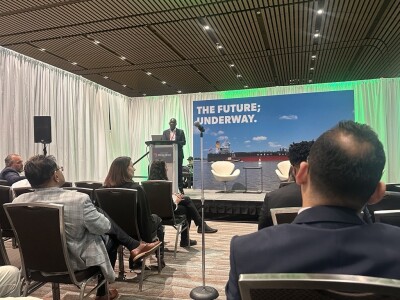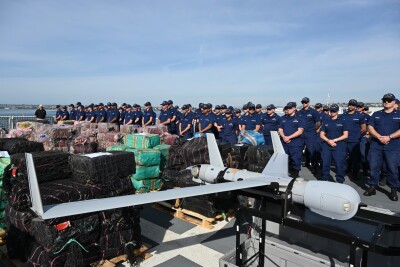For Pedro Pierluisi, Puerto Rico’s sole member of Congress, changing the Jones Act is still important, but it’s not the big fix he’s eyeing for the financially struggling territory right now.
He has sponsored legislation allowing foreign-built vessels to carry energy supplies, agricultural products and other bulk cargo between the island and the U.S. mainland, arguing that especially high electricity costs strain family budgets and weigh on current and prospective businesses. Supporters say the Jones Act is not to blame for high prices, and there’s no guarantee shipping rates would fall if it were changed.
The U.S.-build requirement is one component of the law (Section 27 of the Merchant Marine Act of 1920) that requires cargo moved from one U.S. port to another be on vessels that also are U.S. owned and crewed. Attempts to amend it have been beaten back.
Changing the Jones Act “is extraordinarily difficult, because there are many defenders of the law who oppose any effort to relax it, no matter how narrow the proposed fix or compelling the rationale,” Pierluisi said recently through a spokesman. “I met this resistance head-on when I introduced my bill in 2013, and the opposition is just as vigorous today as it was then.”
Now, the Democrat is concentrating on his bill “to obtain state-like treatment for Puerto Rico under Chapter 9 of the federal Bankruptcy Code, legislation that has broad, bipartisan support and only narrow opposition,” he said.
What’s more, 75% of goods coming to Puerto Rico by sea are from foreign countries on vessels not subject to the Jones Act. “So while Mr. Pierluisi supports a reasonable exemption to the Jones Act for Puerto Rico,” the spokesman said, “we should not overstate the impact that an exemption from the Jones Act would have if granted by Congress.”
A recent report on Puerto Rico’s financial straits cites the Jones Act as one of the structural obstacles to growth. Among the suggested remedies for the whole economy are local and federal action to lower labor costs and encourage employment “and to cut the very high cost of electricity and transportation (Jones Act),” said the report by Anne Krueger, former World Bank chief economist and former deputy director of the International Monetary Fund, and two other economists that was commissioned by the commonwealth.
“All islands, remote from the centers of economic activity, suffer from high transportation costs. But Puerto Rico does so disproportionately, with import costs at least twice as high as in neighboring islands on account of the Jones Act,” the report said. However, the island’s local laws on prices and licensing requirements for ground transportation also add to the costs.
Seems like a good bet Jones Act changes will still be a big topic of discussion even if Puerto Rico’s other economic issues are resolved.




